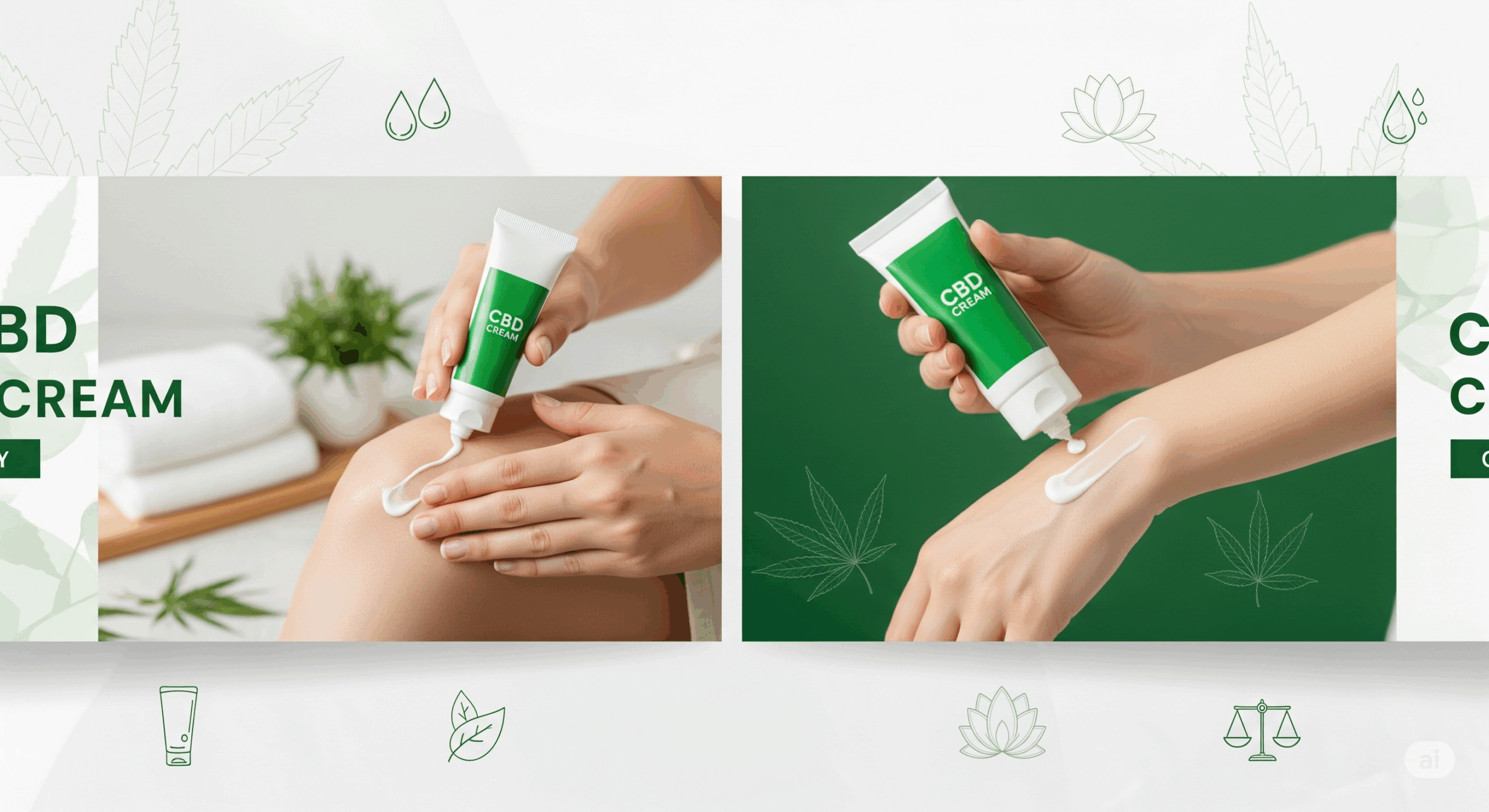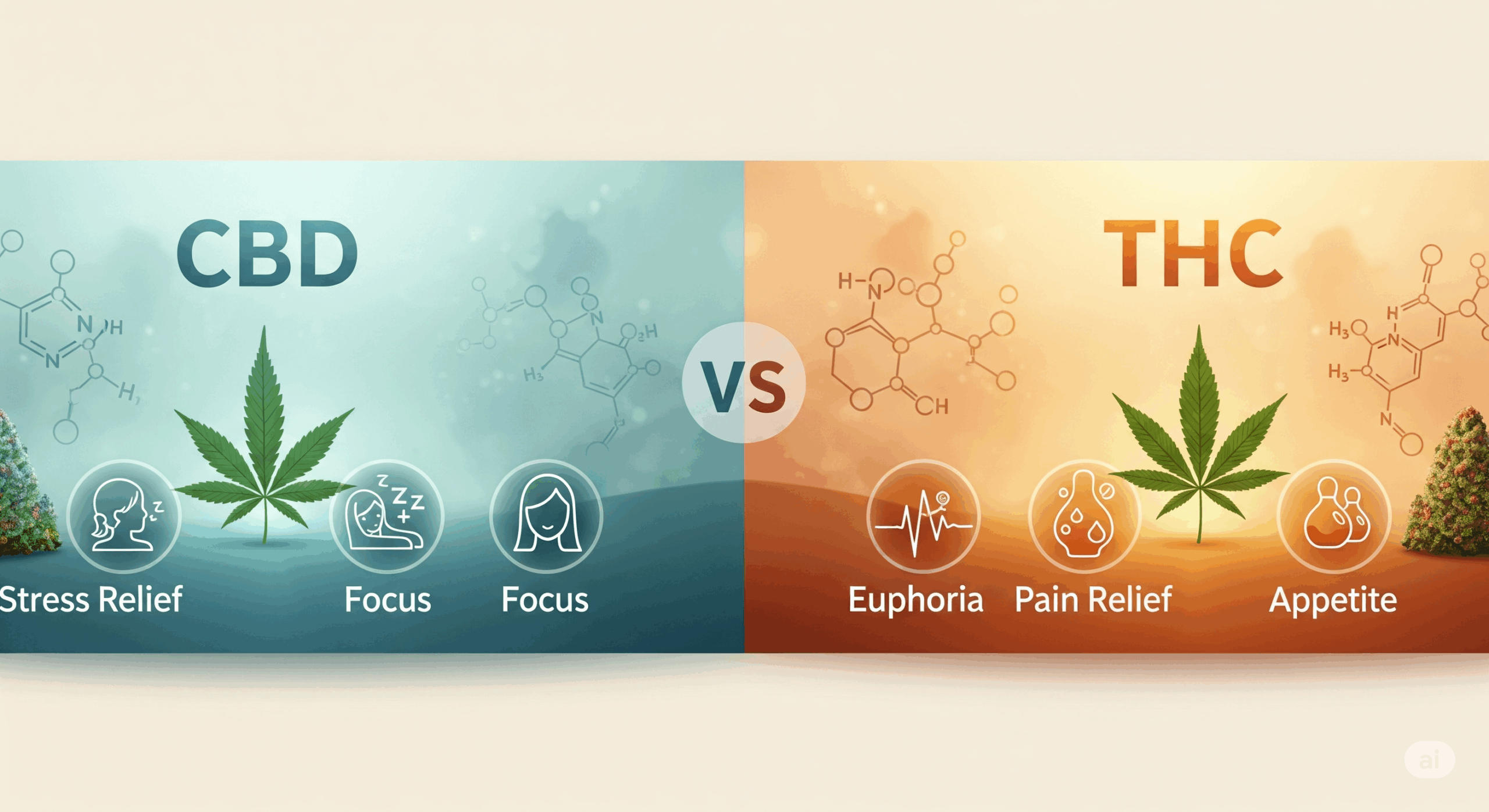As the CBD market continues to expand, one area that has gained notable traction is CBD topicals—creams, balms, and lotions infused with cannabidiol. Unlike ingestible forms, topicals offer localized relief without entering the bloodstream, making them an attractive option for people dealing with chronic pain, inflammation, arthritis, and various skin conditions like eczema or acne.
But how effective are these products? Let’s explore the science behind CBD topicals, their potential benefits, and what recent studies reveal.
What Are CBD Topicals?
CBD topicals are products applied directly to the skin’s surface. They include a wide variety of formats:
-
Creams and lotions
-
Balms and salves
-
Roll-ons and sprays
-
Patches for transdermal delivery
These products are typically formulated with broad-spectrum or full-spectrum CBD extract and enhanced with ingredients like menthol, arnica, camphor, or essential oils to boost their soothing properties.
Unlike tinctures or edibles, topicals do not enter the bloodstream when applied properly. Instead, CBD interacts with endocannabinoid receptors in the skin, potentially helping reduce inflammation, irritation, and discomfort in targeted areas.
How CBD Works with the Skin
Our bodies have an endocannabinoid system (ECS)—a complex network of receptors (CB1 and CB2) that helps regulate pain, mood, inflammation, and immune response. Although CB1 and CB2 receptors are more prominent in the brain and immune cells, some receptors exist in the skin.
When you apply a CBD topical, the compound interacts with these peripheral cannabinoid receptors, especially CB2. While the skin acts as a barrier, small amounts of CBD can still bind to these receptors, helping modulate inflammatory signals and provide localized symptom relief.
CBD Topicals for Pain Relief
Chronic pain sufferers, athletes, and people with arthritis are turning to CBD topicals as a natural pain management option. Several small-scale studies and anecdotal reports suggest that CBD may reduce joint swelling, muscle soreness, and nerve-related pain.
Key Research Highlights:
-
A 2020 study published in the Journal of Pain Research found that topical CBD application significantly reduced pain and inflammation in animal models of arthritis.
-
Another study in Current Pharmaceutical Biotechnology suggested CBD may reduce pain intensity in patients with peripheral neuropathy when applied topically over a few weeks.
-
Anecdotal evidence from athletes shows that CBD balms and creams help with post-workout muscle recovery and stiffness.
CBD Muscle and Joint Relief Cream
CBD Topicals for Skin Conditions
CBD is also making waves in dermatology due to its anti-inflammatory, antimicrobial, and antioxidant properties. Common skin conditions that may benefit from CBD topicals include:
– Eczema & Psoriasis
CBD’s anti-inflammatory nature may help soothe red, itchy skin and regulate excessive cell production seen in psoriasis.
– Acne
CBD can reduce oil (sebum) production and has antibacterial properties, making it a potential option for acne-prone skin.
– Dry or Sensitive Skin
With nourishing carrier oils like jojoba, coconut, or shea butter, CBD topicals hydrate and calm irritated skin.
Key Study:
A 2019 clinical trial published in La Clinica Terapeutica found that applying a CBD-enriched ointment twice daily for 3 months improved elasticity, hydration, and appearance in people with eczema and scars.
What to Look for in a Quality CBD Topical
Since the FDA doesn’t strictly regulate CBD topicals, it’s crucial to choose products from reputable brands. Here’s what to look for:
-
Third-party lab testing for purity and potency
-
Use of organic, non-GMO hemp
-
Clear labeling of CBD concentration per container
-
No harsh chemicals or synthetic fragrances
-
Prefer full-spectrum or broad-spectrum CBD for the entourage effect
Also, pay attention to additional ingredients like menthol (cooling) or capsaicin (warming) based on your pain type.
Are There Any Side Effects?
CBD topicals are generally safe and well-tolerated. Some people may experience:
-
Mild skin irritation (especially if allergic to essential oils or carrier oils)
-
Temporary redness or itching
To minimize reactions, it’s best to perform a patch test before full application.
When to Consider Using CBD Topicals
You may consider using CBD topicals if you:
-
Experience joint or muscle pain
-
Have inflammatory skin issues
-
Suffer from localized nerve pain
-
Are looking for a non-ingestible form of CBD
-
Want a non-psychoactive product (most topicals contain little to no THC)
Always consult a healthcare provider if you have underlying skin conditions or are on medication.
Final Thoughts
CBD topicals represent a promising addition to the natural health toolbox for managing localized pain and skin irritation. While more research is needed, early findings support their anti-inflammatory and analgesic effects, especially when used consistently as part of a wellness routine.
As the science grows, so does the potential for plant-based relief—without the side effects of conventional medications.





